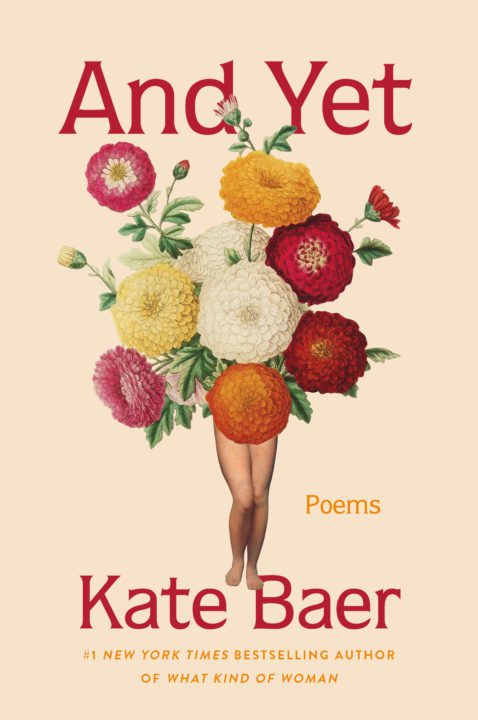
The Many Desires of Kate Baer
February 27, 2023
This essay is part of a series in which Seattle Arts & Lectures partners with Poetry Northwest to present reflections on visiting writers from the SAL Poetry Series. On Thursday, March 2, Kate Baer will read and discuss her work in conversation with Rebecca Hoogs at Rainier Arts Center, at 7:30 pm (PT). Tickets to this in-person and online event can be purchased here and at the box office the night of the event starting at 6:30 pm.
By Margot Kahn
The trouble with wanting, at least so far as I can tell at this juncture of my life, is that the relationship between the public and private self’s desires is an ever-evolving matter. What one was taught or conditioned to want likely overlays some hidden or secret desires, which grow into more complex or perhaps simpler desires as we get older. What seems so clear and static in, say, our twenties will turn out to be just a passing moment: desire shifts and evolves—sometimes dramatically—as our circumstances, politics, culture, relationships, life experiences, hormones, and emotional weather change. The idea of thinking ahead to what my future self will want as a barometer for how I should conduct my life in the present is a concept I now see as a sort of hoax, a fake religion.
Kate Baer’s new book, And Yet, is dripping with desire and its attendant vulnerability, and her wrestling with the concept has resonated with readers the way any work does when it speaks a certain universal truth. There’s maternal desire for the health and well-being of the children, and for the personal satisfaction of those small hands, that “silk and honey breath.” There’s a carnal desire for sex on the carpet and up against the bedroom wall. There’s desire for freedom, independence, time, another kind of body, self-acceptance, and cultural change. In a recent exchange with Baer over email she said, “So much of my work is me simply grappling with what I was taught about women and what we are allowed to like, allowed to ask for, and allowed to be.”
Take, for example, the poem “Thirties,” a three-liner that comes about a third of the way into And Yet:
I wanted everything.
It was obvious and everybody saw it
and talked about it with one another.
That’s the poem in its entirety, surgically perfect in its exactitude: three lines to sum up a decade. At the same time, the linguistic complexity of the poem makes it utterly human. Is the “everybody” referring to a collective group of friends in their thirties understanding the same moment of wanting as the narrator? Or is the “everybody” talking about the narrator behind her back, in hushed tones at the coffee shop as she enters or leaves? Is the “everybody” a declaration of the self, or an assumption of the other? I think it’s both.
“Thirties” makes me laugh out loud, mostly because I recognize the same feeling from my own life. That ambition I felt before becoming a mother; then, bewilderment when years flew by while nursing, playing trains on the floor, goals unmet, and the world in its spectacular unstoppability going on and on around me. “Children getting older helps,” Baer emails, as if speaking directly to my own insecurity. “As they age, their needs become so much less physical. In those early years it feels like the body is constantly sacrificing desire to keep someone else alive. Yes the years are short, but when you are giving up almost everything—it feels like an eternity.” Then, just as soon as you thought you knew what you wanted, the desires change and crash into each other. You want the house, the children, the marriage. You want a divorce, a lover, a lobotomy.